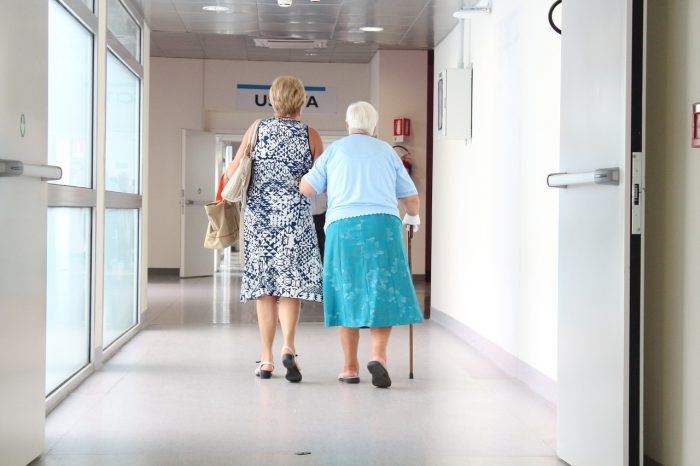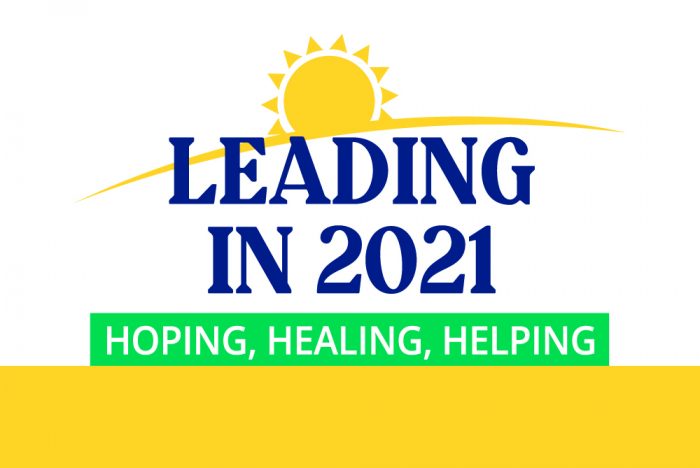Equality Act — Call for Provider Support of LGBT Equality Legislation

RCPA was approached by a coalition of organizations in support of federal nondiscrimination protections for the LGBT community, including Freedom for All Americans, the Bradbury-Sullivan LGBT Community Center of Allentown, and other state and local partners.
The RCPA Diversity, Equity, and Inclusion Committee purpose statement reads that “the committee will actively challenge systemic racism and social injustice through advocacy for legislation, policies, and practices that promote equity, providing guidance and support for DEI initiatives within RCPA member organizations…” This initiative is in alignment with RCPA DEI efforts.
Currently, federal law lacks explicit nondiscrimination protections for the LGBT community in housing, credit, lending, federally funded programs, and public spaces like restaurants, stores, theaters, and hospitals. Additionally, 29 states, including Pennsylvania, lack state laws that explicitly protect LGBT people from discrimination.
This coalition is soliciting supporters from Pennsylvania’s community of service providers — those who support and care for the most vulnerable Pennsylvanians, including LGBT Pennsylvanians who face additional challenges due to the lack of nondiscrimination protections. Service providers are an important and trusted voice in Pennsylvania, and your inclusion will help to demonstrate the broad level of support for nondiscrimination statewide.
By signing on you to this initiative, your organization will join a diverse coalition of service providers supporting the nondiscrimination protections for the LGBT community. Your organization’s name will be shared publicly and will also be shared with Pennsylvania’s US Senators.
To offer your organization’s support, follow this link to join Pennsylvania Service Providers for LGBT Nondiscrimination Protections and make your voice heard.
Please reach out to Jack Phillips or Cindi Hobbes with any questions.
PA Substance Abuse Prevention and Treatment Block Grant Submission Open for Public Comment

The Department of Drug and Alcohol Programs is providing the opportunity for public comment on the Pennsylvania Substance Abuse Prevention and Treatment Block Grant (SABG) submission. This submission will occur in three parts: the Substance Abuse Prevention and Treatment Assessment and Plan, or Mini-Application, which is currently available in draft and available for review; the SAPT Report, which will be posted in November; and the Annual Synar Report, which will be made available in December.
These documents can be accessed utilizing “citizenpa” as your login and “citizen” as your password. Please submit all comments by Thursday, September 30.
Inside Aging — September 2021 Newsletter

Leading in 2021: Hoping, Healing, Helping Conference Updates
In addition to the general sessions, including national updates that will provide valuable information to all, we have several break-out sessions that will be offered live each day during our 2021 Conference. These sessions include:
Tuesday September 28, 2021
- Preparing Infrastructure for Managed Care in ID/DD Providers
- Coordinating Measurement-Based Care: How the Maryland Community Behavioral Health Association Improved Treatment Outcomes and Leveraged Their Data
- Leadership in Technology for a New Era
- The U.S. Department of Health & Human Services Regional Approach to Address Healthy Equity
- Magical Metaphors: Creating a Shared Language Within a CBT Treatment Setting
- Without a Playbook: Navigating the Pandemic While Still Moving Forward
- Enhancing Whole Health and Wellness: Working Works When Using Social Security Work Incentives
- Linking Up! CANS Across the Tristate Area, and How This Can Optimize Care
- Creating an Employee-Centered Culture to Attract & Retain Staff
- Mobile Buprenorphine: A Novel Method for Engaging Populations in Substance Use Disorder Care
- Improving Access to Mental Health and Substance Use Disorder Services For OUR Older Adults. YOU Can Help!
Wednesday September 29, 2021
- Top Funding Resources for Assistive Technology in Pennsylvania
- Measuring What Matters Most: Leveraging the Power of Business Intelligence to Drive Organizational Improvements
- People Like Me: Working with Vulnerable Populations Using an Integrated Model to Behavioral Health Care
- How COVID-19 Changes Our View of Emergency Preparedness: Lessons Learned from COVID-19 and Key Strategies for Preparedness Moving Forward
- The Great Reset: Leadership Beyond the Pandemic
- “Link Outside the Box”: Using Remote Services and Technology to Provide Support Services For Individuals With IDD
- Promoting Motivational Interviewing Spirit and Skills with Paraprofessional Staff
- COVID-19 at 18 Months: How the Pandemic Has Changed Us and Society
- Strategies for Reducing Screen Time Fatigue
Thursday September 30, 2021
- A Collaborative Agency-Based Approach to Implementing a Pandemic-Induced Practice-Based Change to Telehealth
- Concussion (TBI) and Behavioral Health (The Missing Peace): Where Are We Now?
- Trauma-Informed Support for People with Intellectual Disabilities
- No Longer Just a Plan — Value Based Payments in Community HealthChoices in 2022
- The Cultural Competency in the Clinical Assessment & Treatment of Adults with IDD and Co-Occurring Mental Illness
- The Path to VBP is Paved With Quality: A National Perspective on Measures of Quality in IDD Services
- Post-Incarceration Care: How to Create an Effective Transitional Model
- Implementing Trauma-Informed PA (TIPA): PRTFs Becoming Trauma-Informed
- We Hear You!
- Expanding Integrated Primary Care for People with IDD: Replicable Models and Policy Implications
- The Unexpected Implications of the COVID-19 Pandemic
- Time Banking: A Grassroots Resource for Increased Personal Outcomes and Community Development
There will also be over 20 “on-demand” sessions on many timely subjects and topics, such as Leadership, Diversity, and Remote Supports and Services.
Visit the RCPA Conference website for specific updates to the schedule, posted as they become finalized.
Handouts Available From Sept 1 MLTSS Subcommittee Meeting
Today, the Managed Long-Term Services and Supports (MLTSS) Subcommittee met via webinar for their monthly meeting. The agenda included:
- An update from Jamie Buchenauer, Deputy Secretary, Office of Long-Term Living (OLTL), which focused primarily on updates on issues raised by the Statewide Advocacy Group;
- A presentation on the Consumer Assessment of Healthcare Providers and Systems (CAHPS) Health Plan Survey; and
- Updates regarding PHW, UPMC, and AHC from the Community HealthChoices (CHC) Managed Care Organizations (MCOs) on CHC MCO Resource Tools.
In addition, there is a meeting transcript from the meeting.
September is FASD Awareness Month
September is National Recovery Month — Message from Secretary Jennifer Smith
Watch video from Secretary Jen Smith
Just as the storm is making its way across our state today— families and individuals across Pennsylvania are weathering internal storms of their own everyday caused by the disease of addiction.
Today is September 1, which marks the start of National Recovery Month. The goal throughout September is to come together, celebrate individuals in recovery, and offer hope to those who are struggling. National Recovery Month reinforces the positive message that behavioral health is essential to overall health, prevention works, treatment is effective, and people can and do recover.
I encourage you to visit our 2021 National Recovery Month webpage for events near you and for information regarding our National Recovery Month Twitter chat on September 14.
– Jen
DDAP Issues New Licensing Alert, Information Bulletin Regarding Emergency Contact Notification
DDAP today issued a new licensing alert and information bulletin, both pertaining to emergency contact notifications. Licensing Alert 02-21 outlines requirements that inpatient drug and alcohol treatment facilities must follow per Act 41 of 2021 regarding notification of emergency contacts when patients leave treatment against medical advice. Information Bulletin 03-21 outlines requirements that recovery houses must follow per Act 35 of 2021 regarding notification of emergency contacts when residents self-discharge from or leave and fail to return when expected to the house.
Pittsburgh Adopts Policy to Not Arrest Individuals Who Possess or Distribute Fentanyl Test Strips
Pittsburgh Mayor William Peduto issued an executive order on Tuesday to allow the possession and use of fentanyl test strips, a key opioid overdose prevention tool, in the City of Pittsburgh. The order also directs the City of Pittsburgh Office of Community Health and Safety (OCH&S) to work with city employees and the public to educate them on the benefits of these lifesaving tools and to reduce the stigma associated with possessing them.
With this executive order, the City of Pittsburgh joins the Pennsylvania Attorney General and Allegheny County District Attorney in adopting a policy to not arrest individuals who possess or distribute fentanyl test strips for harm reduction purposes.
Read the full press release here.














